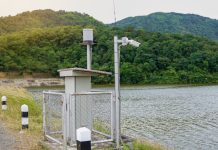By Lars Rensing
As sustainability becomes a growing imperative for countries globally, the European Commission has brought into place legislation to ensure businesses play their part in supporting a more circular economy. The EU’s Ecodesign for Sustainable Products Regulation aims to encourage businesses to take greater responsibility for the products they use and put into circulation. As part of this, the mandating of Digital Product Passports and the invaluable access to data they provide will prove a key factor in achieving these monumental ambitions. Take a read to learn more.
As sustainable processes become a growing priority for businesses globally, the European Union’s efforts to support a circular economy are also high on the agenda with the Ecodesign for Sustainable Products Regulation (ESPR) passing into force this year. When we consider the fact that the metric tonnage of e-waste alone is due to reach 82 million by 2030, the EU’s aim to become the first climate-neutral region by 2050 is an initiative all businesses should be supporting to reduce our global carbon footprint.
The ESPR remains the ‘cornerstone of the Commission’s approach to more environmentally sustainable and circular products’, and will set the design requirements for a range of products, within specified sectors, that are placed on the EU market (regardless of where they were produced). The deadline for compliance is expected to be 2030 but for some priority product groups (such as textiles), it may be before this. The legislation is set to boost resource efficiency, extend product lifespans, and enhance the recyclability attributes of products as part of its wider circularity goals.
Therefore, to ensure compliance ahead of time, businesses that the legislation will impact should start becoming more conscious of their operations, and ensure sustainability becomes a growing focus point for all stakeholders involved in the lifecycle of the products they produce. Moreover, although information on the delegated acts (information relating to the exact requirements for product groups impacted) is yet to be announced, businesses hoping to have a smooth transition amidst this changing landscape will be best positioned if they begin preparing a compliance strategy from the offset.
DPPs, access to data, and supporting a circular economy
As part of the EU’s sustainability move, the mandating of Digital Product Passports (DPPs) will play a key role in ensuring the EU’s circularity aims are met.
In simple terms, DPPs are a tool used to collect and share product information throughout a product’s life cycle (largely acting as a digital twin) and will prove significant in achieving the EU’s circularity goals due to the transparency they enable into a range of product data. This could include the materials used in production, to the carbon footprint of this process while also providing details on product history and the most sustainable disposal methods. Typically, DPPs are accessible via a data carrier (such as a QR code or barcode) and will be affixed to the physical product and scannable via a smartphone.
Providing easy access to information concerning the carbon footprint and sustainability credentials means that DPPs will prove pertinent to the EU’s goals. By providing such detailed data, businesses will be encouraged to adopt sustainable decision-making when designing and manufacturing future iterations of products, and consumers will be inspired to make more sustainable purchases.
For example, if a consumer goes shopping for a laptop, they could scan the QR codes attached to two different laptops to understand the carbon footprint of each manufacturing process and choose the one that’s had a smaller environmental impact. Moreover, DPPs will support consumers in their safe and correct disposal of an item when it reaches end-of-life by providing easily accessible information on the exact materials that make up a product (including hazardous materials often present in electrical items) and instructions for recycling or disposal. These factors are largely why the EU considers them a driving force in reducing landfill and toxic waste on a global scale.
How European Businesses can prepare
Understandably, there is a level of uncertainty that comes alongside these changing tides as requirements for businesses to support the EU’s efforts could seem daunting at first. However, the DPP mandate will undoubtedly have a positive impact on businesses and society alike. Largely, this should be seen as an opportunity for businesses to galvanize their sustainability practices.
As noted previously, although the delegated acts are yet to be announced, businesses set to be impacted would be wise to start considering an initial action plan to ensure they are not on the backfoot once rules are published- particularly as the journey towards compliance could be a long and labor-intensive process.
The first port of call could be to assign a lead or dedicated team to conduct a deep-dive into what we know about the regulation today, alongside making note of all aspects of the supply chain and operations that could be impacted. Having an understanding of where data could be gathered throughout the value chain, conducting a data gap analysis or a readiness assessment in relation to the DPP requirement is likely to put businesses in a strong position to create a cohesive strategy once the delegated acts are announced. Moreover, taking this a step further and starting to consider the partners who could support a business’s DPP integration would be another preparation tactic to consider before creating an implementation plan.
Only after these proactive steps are taken, alongside the announcement of the delegated acts, will businesses be able to create a more comprehensive strategy to ensure a smooth compliance journey.
The EU’s sustainability action plan, via the ESPR and mandating of DPPs, is something European businesses should be excited about playing an essential role in. By taking proactive measures now and understanding the importance of compliance, businesses will be actively contributing to a sustainable future on a global scale while also advancing their supply chain efficiency and validating their sustainability credentials.



 Lars Rensing
Lars Rensing





